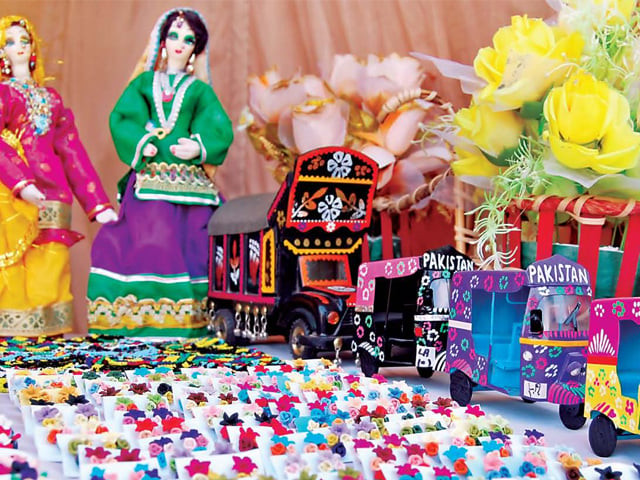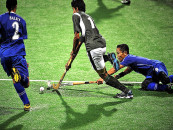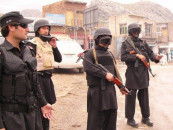Women Solidarity Mela: Govt urged to submit domestic violence bill
Khan talks about discrimination against women at event organized by Aurat foundation and Oxfam-GB.

Khan was talking at “Women Solidarity Mela” in Islamabad on Saturday. She added that all indicators relating to the status of women rights reflected that there were “extremely high levels” of discrimination and violence against women.
“This uncovers an appalling reality about the society where women are ignored — many girls do not reach puberty owing to malnutrition or health negligence,” she added.
Other participants at the mela demanded of the government to submit the bill against domestic violence in the parliament before December 10, when the “16 Days of Activism Against Gender Violence” concludes. Every year starting on November 25 — the International Day to End Violence Against Women — these 16 days are observed where people the world over speak out against gender violence, according to United Nations Population Fund’s website.
Tahira Abdullah, a social activist, criticised the census organisation for its gender-blind methods. The staff deputed for census, she said, does not separately ask for the number of boys and girls when they are filling the children column. The respondent, usually a male, frequently omits the names of the female members of the household, thus making it very hard to estimate the number of females in the country.
Women, Abdullah said, were scared of being women. Giving birth to baby girls in Pakistan is akin to a crime, she said. “During pregnancy when they learn that it is a baby girl, they prefer abortion instead of giving birth.”
Naeem Mirza, the chief operating officer of Aurat Foundation, said, “[The responsibility of] providing protection to women rests with the state, which includes law enforcement agencies, lower judiciary and higher judiciary among others.”
On the other hand, Samina Naz, director of Potohar Organisation for Development Advocacy (Poda), emphasised that the high illiteracy rate in the country was one of the “biggest hurdles” in the way of women rights. “The government should not only focus on educating rural women but also the men,” she said.
Zamrud Khan, Managing Director Baitul Mal, said every day throughout the country thousands of women become victims of domestic violence. He said the department will try to support all deserving widows and children across, despite its limited resources.
“To empower our women we have started a skill development centre where they learn stitching, embroidery and computer basics and also get Rs10/day as stipend,” he maintained.
On the occasion he announced that Baitul Mal will provide funds to all those women and children who are in jail and need up to Rs50,000 for bail.
Shaukat Pervaiz, President of Pakistan Federal Union of Journalists (PFUJ), said the PFUJ has made a committee of senior female journalists to encourage women in the field to come forward and empower women in media.
The mela also featured colourful stalls, which remained centre of attraction for the visitors. To make the event more meaningful and thoughtful Bol a documentary by Samar Minallah, on many facets of violence against women, was also showcased.
Sheema Kirmani and her group Tehrik-e-Niswa presented a choreographed number titled Meri Kahani (literally: my story) at the meal. The theme was extremism and violence against women in the society. The performers danced in a beautifully-orchestrated number and highlighted issues of domestic violence, especially matters like marriages where women are denied the right to make their own decision.
The mela concluded on sufi and classical music by Aliya Rasheed.
The event was organised by Aurat Foundation in collaboration with Oxfam GB at Sindh Graduates Auditorium in sector H-8.
Published in The Express Tribune, December 5th, 2010.



















COMMENTS
Comments are moderated and generally will be posted if they are on-topic and not abusive.
For more information, please see our Comments FAQ